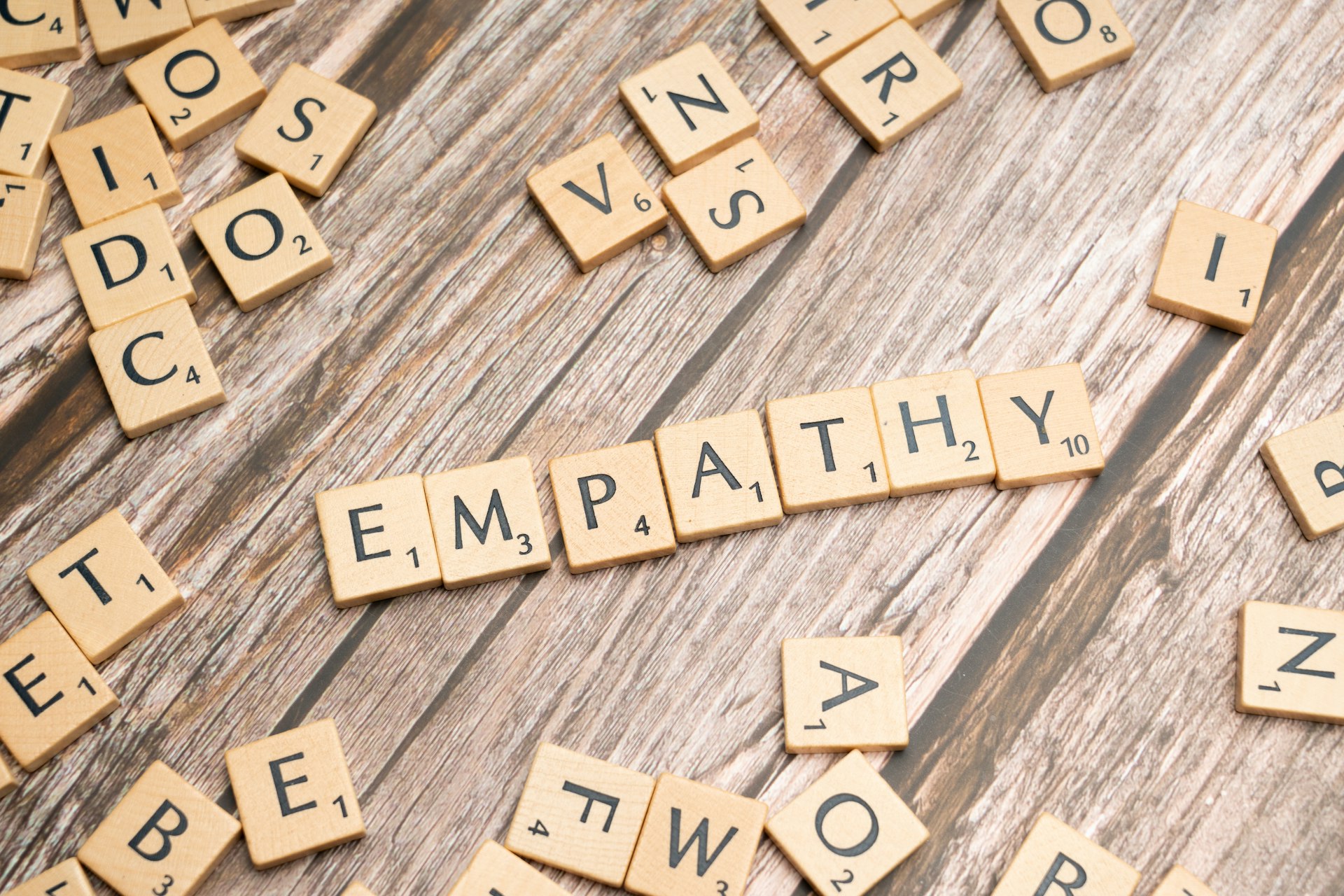Unlocking Fulfillment: The Critical Role of Emotional Intelligence in Everyday Life


Photo by Markus Winkler on Unsplash
Introduction
In today’s fast-paced world, emotional intelligence (EI) has emerged as a vital skill for thriving in personal and professional settings. While many focus on technical abilities and knowledge, your ability to understand and manage emotions directly shapes your quality of life. Emotional intelligence isn’t just about feeling good-it’s a practical toolkit for navigating daily challenges, building meaningful relationships, and making smart decisions [1] . This article explores the essential role of emotional intelligence in lifestyle, the specific benefits it brings, and actionable guidance for boosting your own EI.
What Is Emotional Intelligence?
Emotional intelligence refers to the set of skills that help you recognize, understand, and manage your own emotions, as well as interpret and respond to the emotions of others. EI includes self-awareness, self-regulation, motivation, empathy, and social skills. These components work together to support better interactions, healthier relationships, and greater personal resilience [3] .
Why Emotional Intelligence Matters for Lifestyle
Emotional intelligence touches every aspect of daily life. Whether you are at work, at home, or in social settings, your ability to process emotions affects your choices, your well-being, and your success. Individuals with high EI are more likely to:
- Form deeper, more meaningful relationships [1]
- Communicate effectively and solve conflicts constructively [3]
- Manage stress, adapt to change, and maintain emotional balance [2]
- Make smarter decisions by pausing and reflecting rather than reacting impulsively [4]
Key Benefits of Emotional Intelligence in Daily Life
1. Building Strong Relationships
High emotional intelligence fosters deeper bonds, whether with friends, family, or colleagues. Empathy allows you to understand others’ perspectives, leading to smoother communication and more meaningful connections. For example, by actively listening and responding with compassion, you can resolve conflicts more constructively and strengthen trust [1] . Studies have shown that students and employees with higher EI enjoy better social relationships and improved performance [2] .
Implementation: To build stronger relationships, practice active listening, give others space to share their feelings, and regularly reflect on your own emotional responses. If conflict arises, focus on understanding the other person’s viewpoint before responding.
2. Effective Communication
Emotionally intelligent people convey their thoughts clearly and interpret others’ messages accurately, both verbally and non-verbally. This skill is crucial in all areas of life-during tough conversations, negotiating at work, or expressing needs within personal relationships [3] .
Implementation: To improve communication, pay attention to body language, tone, and emotional cues. Before responding, pause to consider your words and their impact. Techniques like “I feel” statements can help express emotions without blame.
3. Stress Management and Resilience
Life is filled with stressors-from work deadlines to personal setbacks. Emotional intelligence equips you to manage stress, adapt to change, and bounce back from adversity. Self-awareness and self-regulation help you identify stress triggers and choose healthy coping strategies, reducing the risk of burnout and supporting long-term well-being [2] .
Implementation: When facing stress, take a few moments to assess your feelings. Practice mindfulness or breathing techniques to calm your mind. Journaling your emotions can increase self-awareness and reveal patterns that need attention.
4. Smarter Decision-Making
Emotional intelligence guides you to make thoughtful choices, even under pressure. Understanding your emotions and how they influence your thinking helps prevent impulsive reactions. High-EQ individuals are more likely to act in alignment with their values and long-term goals [4] .
Implementation: Before making important decisions, pause and reflect on your feelings and motivations. Consider possible outcomes and discuss options with trusted individuals. Developing a habit of self-reflection can lead to better judgment.
5. Leadership and Workplace Success
In professional environments, EI is just as critical as technical skills. Leaders with high emotional intelligence motivate teams, foster collaboration, and navigate complex interpersonal dynamics. Many organizations now prioritize EI in hiring and leadership development [5] . Employees with strong EI tend to perform better, experience less workplace stress, and contribute positively to company culture.
Implementation: To develop EI at work, seek feedback from colleagues, practice empathy, and focus on collaborative problem-solving. If you’re a manager, encourage open communication and model emotional awareness in your interactions.
6. Physical and Mental Health
Managing emotions is closely linked to overall health. Chronic stress, if left unchecked, can lead to serious physical issues like high blood pressure, immune suppression, and increased risk of heart disease. Emotional intelligence helps you recognize stress early and apply coping strategies, which can lead to better health outcomes [5] . Additionally, high EI reduces vulnerability to anxiety and depression by fostering stronger social connections and emotional stability.
Implementation: Monitor your stress levels and seek support when needed. Engage in regular physical activity, maintain healthy routines, and nurture relationships. If you notice signs of emotional distress, consider consulting a mental health professional or exploring resources such as the National Alliance on Mental Illness (NAMI).
How to Improve Your Emotional Intelligence
Enhancing EI is a lifelong process, but small daily actions add up over time. Here are practical steps to build your emotional intelligence:
- Practice self-awareness: Reflect on your emotions and triggers regularly.
- Develop empathy: Seek to understand others’ viewpoints and feelings.
- Manage stress: Use mindfulness, exercise, or relaxation techniques.
- Communicate clearly: Express emotions thoughtfully and listen actively.
- Seek feedback: Invite input from trusted friends, family, or mentors.
For more structured guidance, you can explore resources and expert guides available on reputable platforms. For example, HelpGuide.org offers a comprehensive approach to building emotional intelligence, including actionable exercises and further reading [5] .
Challenges and Solutions
Improving emotional intelligence isn’t always straightforward. Common challenges include difficulty recognizing emotions, struggling to empathize, or managing stress in high-pressure situations. Solutions include regular self-reflection, practicing mindfulness, and seeking support from professionals or support groups. Remember, progress takes time, and setbacks are part of the process.
If you encounter barriers, consider alternative approaches such as emotional intelligence workshops, online courses, or counseling. Many organizations and mental health providers offer EI training; search for “emotional intelligence workshops” or “EI coaching” to find options in your area.

Photo by Kian Mousazadeh on Unsplash
Alternative Pathways and Additional Resources
If direct services or programs are mentioned, it’s essential to find reputable providers. To locate emotional intelligence courses or support groups:
- Search for local counseling centers or mental health organizations.
- Ask for recommendations from healthcare professionals or your workplace HR department.
- Look for online courses on established educational platforms like Coursera or Udemy (always verify course provider credentials).
For workplace programs, contact your HR department to inquire about EI training and employee wellness initiatives. If you are a student, speak with your academic advisor or campus counseling center about available resources.
Conclusion
Emotional intelligence is a cornerstone of a fulfilling lifestyle, supporting stronger relationships, effective communication, better stress management, and smarter decisions. By investing in your EI, you empower yourself to thrive in all areas of life. Whether building deeper connections or navigating daily challenges, emotional intelligence offers practical benefits for long-term well-being.
References
- [1] Calm (2023). Why is Emotional Intelligence Important? Benefits and guidance.
- [2] BetterMe (2024). Examples of Emotional Intelligence to Practice in Daily Life.
- [3] Pause Factory (2023). The Importance of Emotional Intelligence in Everyday Life.
- [4] Zivanza (2022). Understanding the Role of Emotional Intelligence in Daily Life.
- [5] HelpGuide (2024). Improving Emotional Intelligence (EQ): Expert Guide.






